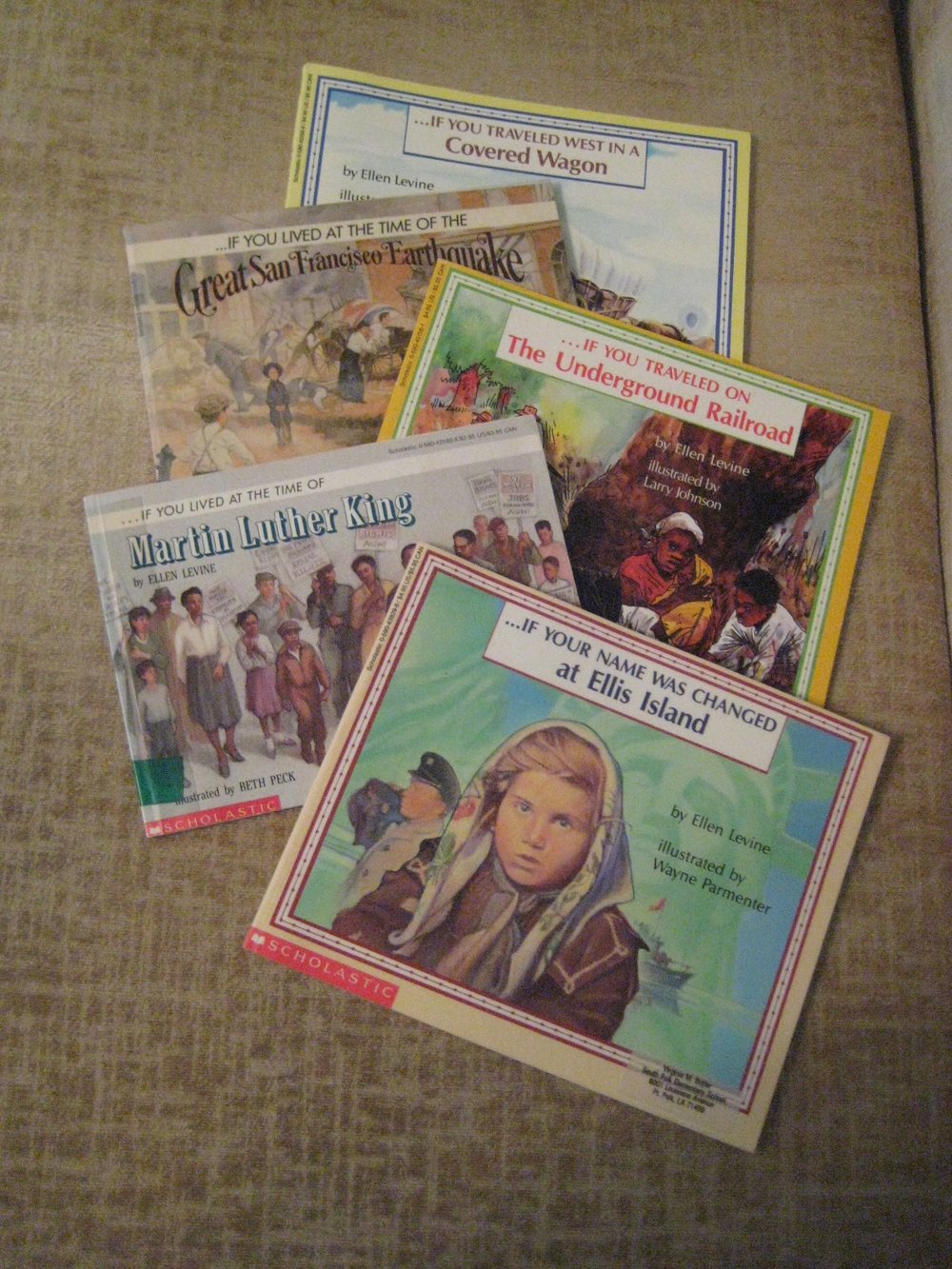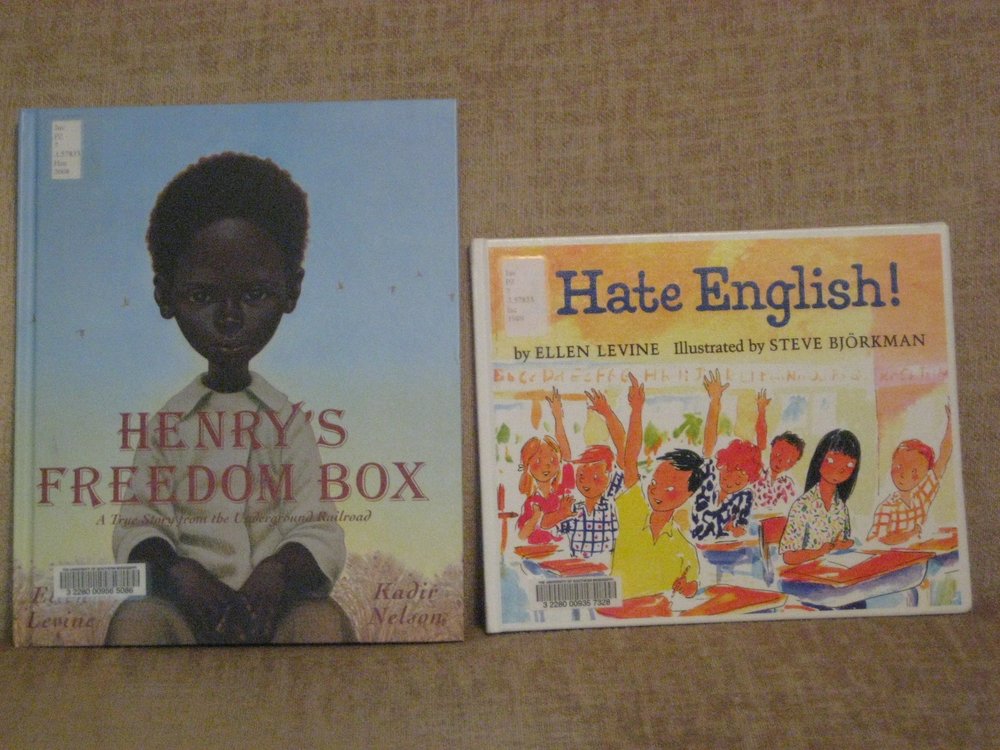
When I read of her death, I went looking in my collection and found five of those books:
• If You Traveled West on a Covered Wagon
• If You Lived at the Time of the San Francisco Earthquake
• If You Traveled on the Underground Railroad
• If You Lived at the Time of Martin Luther King
• If Your Name Was Changed at Ellis Island
She went on to write other books championing immigrants, minorities, and women. Like many people, her compassion started with a memory from childhood, which she includes in the biography on her website.
I don't remember why she (her mother) told me one day about the great jazz singer Bessie Smith. But I learned at an early age that Bessie Smith had died because a hospital she was brought to wouldn't treat a black person. And I also learned there were places that turned away Jews. One summer day we rode in a hired taxi to a country hotel in New York's Catskill mountains. We passed a billboard advertizing a hotel, not ours. Across the bottom were words I can see as if it were yesterday: No Jews, Negroes, or dogs.
I checked a couple of her other books out of the library and read them in her memory. Mei Mei, whose family moves from China to New York, in I Hate English finds English not only difficult but ordinary looking – unlike the beautiful characters in Chinese. Nancy, a clever teacher, uses story and conversation to befriend the little girl until quite by surprise Mei Mei discovers she has the wonderful choice of using both English and Chinese.
Her Henry’s Freedom Box: A True Story from the Underground Railroad has extraordinary illustrations by Kadir Nelson. With a little help from his friends, the slave Henry Brown ships himself to Philadelphia and liberty. He survives, in spite of shipping clerks who ignore “This Side Up” signs and arrives to gain his freedom and a new name – Henry “Box” Brown.
Thanks, Ellen, for the history you brought to life and for the empathy for real and imagined characters who experienced hard times you gave us without preaching to us.
